There is a chapter in Nigeria’s sports history that must never be forgotten. Indeed, it must now be resurrected.
I urge all my readers to take special note of the name, Idorenyin Uyoe. It is the name of a Nigerian based in Atlanta, Georgia, USA. He is one of the most erudite, knowledgeable, resourceful and versatile sports personalities I have ever encountered. He is a historian, a story-teller, and a foremost sports marketing strategist and consultant.
In his profile, I observe that the genesis of his interest in, and passion for sports started at the OIympic Games of Montreal, Canada, an event he attended as a very young boy in 1976.
Incidentally and coincidentally, it is the same Games that were my baptism into the world of international sports diplomacy. Over 40 years after Montreal, I am now ‘seeing’ the ramifications of the 1976 unfolding as we approach the Winter Olympics coming up in Beijing, China, in the next few weeks.
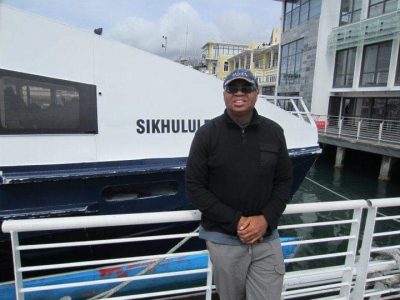
Idorenyin Uyoe
Idy, as Idorenyin is better known, and another great African/American, a scholar, historian, specialist in conflict resolution, peace and human rights activism, son-in-law to the former President of Tanzania, the late great Dr. Julius Nyerere, and a director of the Mwalima Nyerere Foundation, Professor Ikaweba Bunting, will be sharing a common platform at the Nigeria Institute for International Affairs, NIIA, Lagos, on a day in February 2022, during the period of the Black History Month to share their experiences and vision for Nigeria in the global ‘game’ of Sports and Diplomacy.
Also Read – Odegbami: Matters Arising In Nigerian Sports – A Mixed Grill!
They will be accompanied by Ron Freeman and Ron Davis (you’ll be reading more about these two great former African/American legendary athletes and current humanitarian workers in Africa).
In the area of sports diplomacy Nigeria has a rich but often forgotten history. In the course of planning this program, Idy and I were introduced to each other. During our conversation, he treated me to a useful summary of Nigeria in the global sports diplomacy space. It was the best education I have had to buttress the new concept conceived by the Director-General of the NIIA, Professor Eghosa Osaghae, to add sports to Nigeria’s armoury of diplomatic ‘weaponry’ in international affairs.
Idy raised an issue that no one that I know has ever raised before, a forgotten chapter in Nigeria’s history, and indeed, in the history of Africa and the Black race. I am seeing its connection to the current unfolding diplomatic drama in Beijing, China.
There is an expanding row between some Western countries and China precipitated by an accusation levelled by a popular female Chinese tennis star player, Peng Shua, against a former senior political figure, former Vice-Premier Zhang Gaoli, of sexual assault many years ago.
Since that accusation the player has not been seen in public in China, and a diplomatic ‘war’ has ensued between some Western Countries led by the USA, and China. The USA is now leading a ‘diplomatic boycott’ campaign of the games. Other countries have joined – the UK, Australia and Canada. More may still join. They all now claim gross human rights abuses against China.
By the way, a diplomatic boycott is one by government officials whose only role in the games is the photo-ops with other celebrities that add some colour but do not impact the integrity of the games, and do not affect athletes’ participation. The impact on the games is so trivial that the Chinese have called the bluff, and countered by saying that the officials were not officially invited in the first instance and their absence would not even be felt.
Africa has not joined in the ‘ceremonial’ boycott.
We remember how the same West treated African’s boycott when 27 African countries protested against some of the worst human rights abuses in history, against Black persons.
In 1968, at the Mexico Olympics, two African/American athletes stood on the medals podium after winning their races, raised their clenched, gloved fists in the symbolic Black Power salute, as the USA national anthem was being played, in silent protest against human rights abuses in their country (USA) and racism against Blacks around the world.
What happened?
The IOC immediately withdrew their medals, sent them out of the games in disgrace, just as their own country ostracized them, and for decades were made to suffered criticism and abuse. The story of Tommie Smith and John Carlos is well documented in history
Fast forward to 1976, to the Olympic Games of Montreal, Canada.
The Nigerian Olympic Committee led a protest against Apartheid (the worst form of racial and human rights abuse through discrimination against Blacks in South Africa) at the games. 27 African national Olympic Committees joined in the boycott of the games.
It was the power of sports at its demonstrable peak.
How did the IOC react?
The athletes of the Black African countries were immediately banished from the games, one day to the opening ceremony.
Neither America, nor any one of the superpowers in the West or the East raised a finger of solidarity in support of the Africans’ just cause.
Idorinyen drew my attention to the wider significance of that episode in 1976.
Former USA Ambassador, politician, civil rights activist and diplomat, Andrew Young, was to remark later that but for Nigeria’s leadership of the 1976 Olympic boycott, Apartheid in South Africa would have lasted many years than it did; that the boycott forced the ‘hand’ of the West to react; that the boycott inflicted monumental damage to the sanctity of the Olympics as non-political, and made the Montreal Olympics to become one of the worst in history. It is hardly ever recalled or even celebrated for that reason.
Also Read – Odegbami: Next Super Eagles Coach – This Mumu Must Stop, Now!
The same Andrew Young later ‘credited’ Chief Olusegun Obasanjo, the Nigerian President at the time, who approved the boycott for the Nigerian Olympic Committee, NOC, for Nelson Mandela’s ascendancy to become first Black President of South Africa. But for the boycott, Nigeria’s role and its impact, Nelson Mandela would probably never have become President.
My interest in this write-up is what happened to the African athletes.
Idy resurrected that subject.
The athletes paid the ultimate price. They gave up the once-in-a-lifetime-opportunity to become Olympians on the altar of protesting racial and human rights abuses of their brethren in South Africa.
Many of those athletes across the African continent never went to another Olympics again, with their individual dreams ‘dying’ on the tracks of diplomacy.
Many Nigerian athletes suffered that fate. Many of them have since passed on and their names are not recorded anywhere as ‘fighters’ against the greatest human scourge in history.
I was in that Nigerian contingent in 1976 and I recall the incredible spirit and confidence in the Nigerian camp on the eve of the games. Those dreams were shattered by the clarion call of our government to support our Black brethren not only in South Africa, but around the world.
I remember Charlton Ehizuelen who would undoubtedly have stood on the medals winning podium without question. He was the best long and triple jumper in the world at the time, and was an almost certain Gold or Silver medalist.
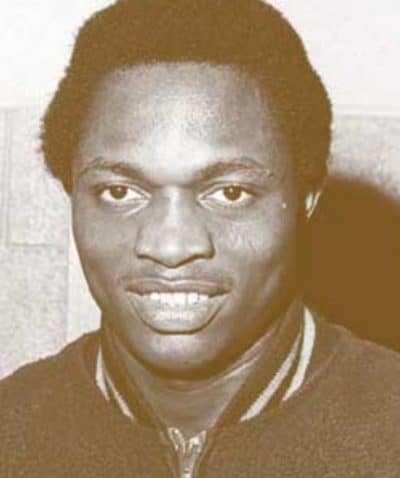
Charlton Ehizuelen
I remember Nigeria’s 400 meters athletes and the relay quartet running some of the fastest times in the world on the eve of the Olympics.
I remember Obisia Nwankpa, the young Nigerian light welterweight boxer, who was at his peak going to the Olympics, along with a younger Davidson Andeh who two years later became the first and only Nigerian World amateur boxing champion. They were medal prospects.
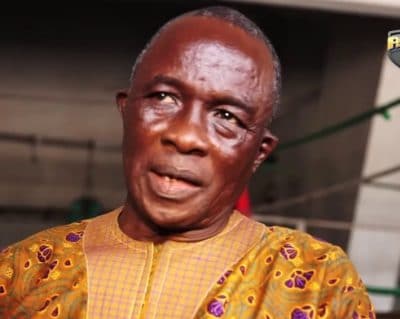
Obisia Nwankpa
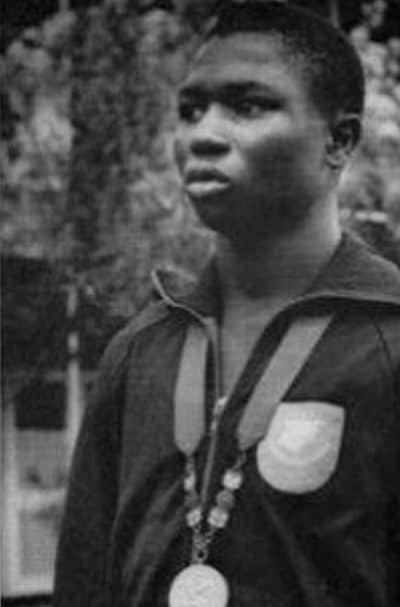
Davidson Andeh
I remember the Green Eagles trouncing Colombia and Canada on the eve of the Games whilst parading players like Kunle Awesu and Baba Otu Mohamed, Africa’s best left and right wingers at the time, in that incredible football team that was bristling with talent.
I remember a whole lot of other athletes in table tennis, weightlifting, Track and Field and so. I remember very clearly.
Most of these athletes never had a second chance to become Olympians. The same thing happened to most of the African athletes in the 27 other African countries that joined in that protest.
Even in the smallest of conversations, all those athletes that made the sacrifice, fighters against injustice, racial abuse and human rights, are never acknowledged, not to talk of being honoured by their countries, or even by their race, for their unique act in 1976.
Idy, insists that all those Nigerian, and indeed, African athletes that went to Montreal and ‘changed the world’ with their unprecedented sacrifice should be remembered and honoured. He promises that in February, he would stir the hornet’s nest by leading a movement to honour the ‘forgotten heroes’ of Africa’s greatest sports diplomatic moment in history when he comes to the NIIA for the first in a series of conversations that will become part of Nigeria’s think-tank in harnessing the power of sports in diplomacy.
Segun Odegbami
Copyright © 2024 Completesports.com All rights reserved. The information contained in Completesports.com may not be published, broadcast, rewritten, or redistributed without the prior written authority of Completesports.com.
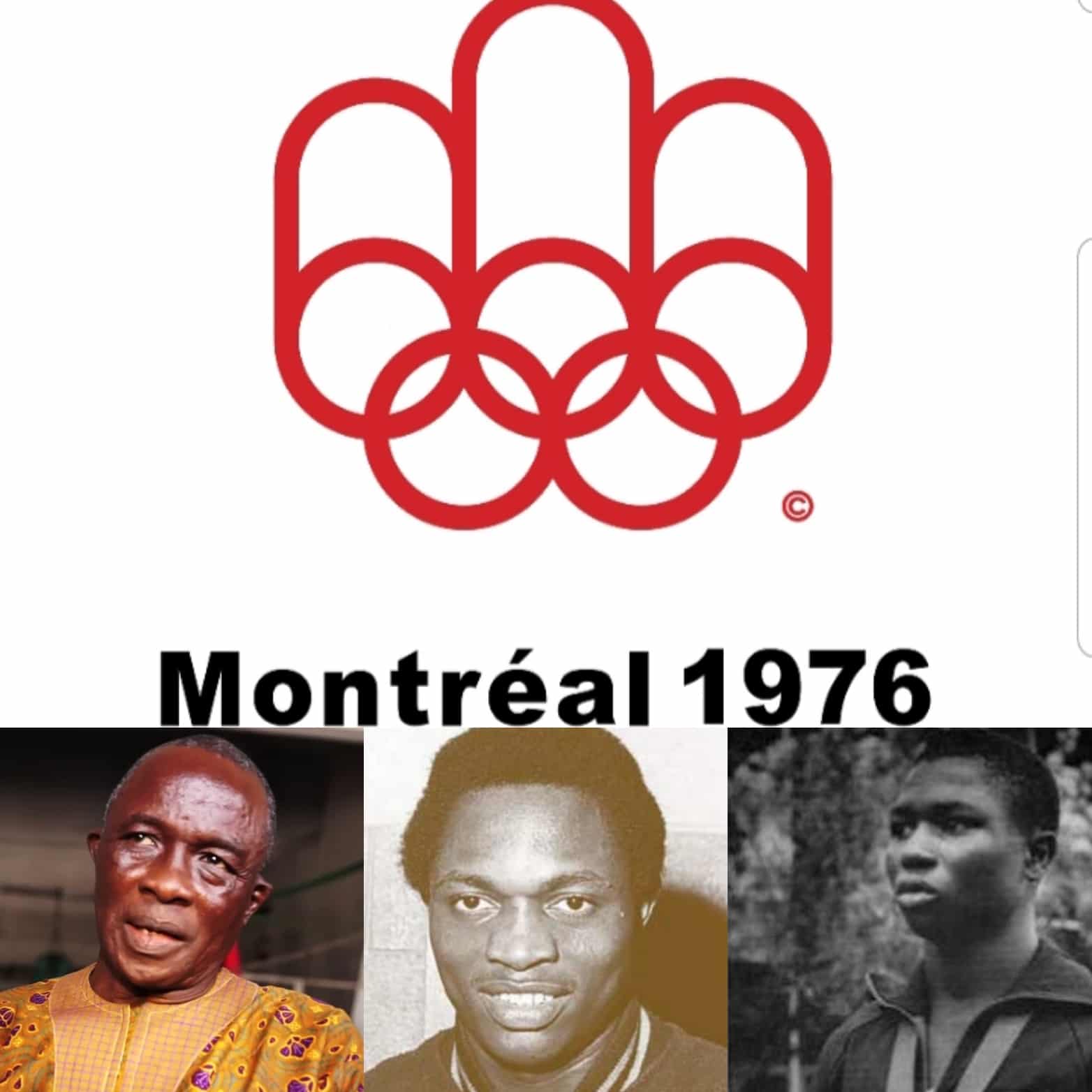
COMMENTS
Going Going Gone. This man wanted Rohr to leave, but as things stands now, he has left the Rohr subject to write on our forefathers
Bros ODEGBAS, abeg let dem rest in perfect peace joor. Dem Don dey rest in peace n you wan ressurect dem to come trouble dem mind with Nigeria’s monumental problem? Lolz Bikonu. Nijja matter is enough for only one life time. Two times experience will make Hell second heaven.
The legend just remembered them to refresh his memory, the great athlethe of yesteryears I never know. Kudos to Uncle Segun Odegbami.